Meet Josue Pierre: Running To Represent Flatbush In City Council
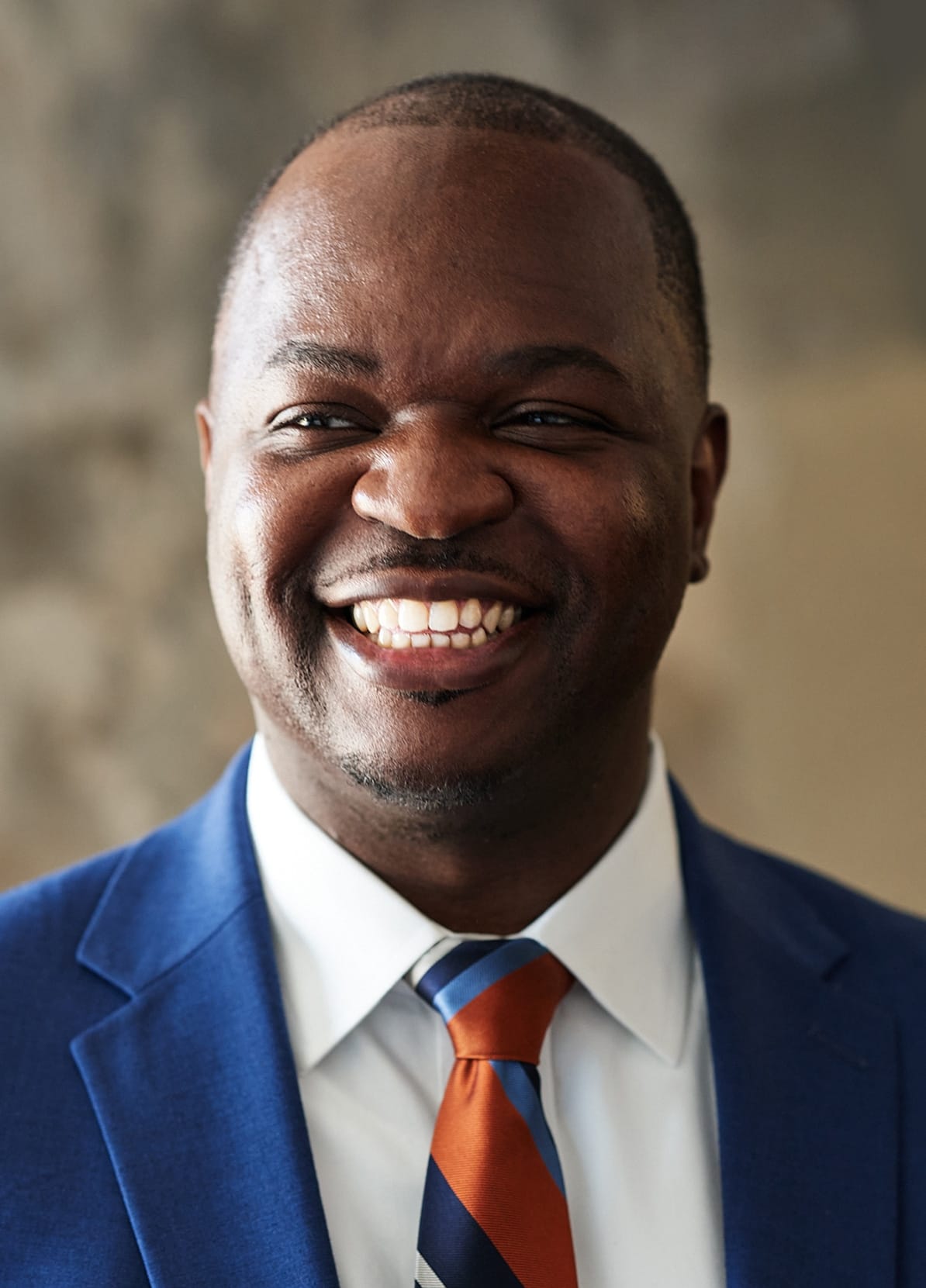
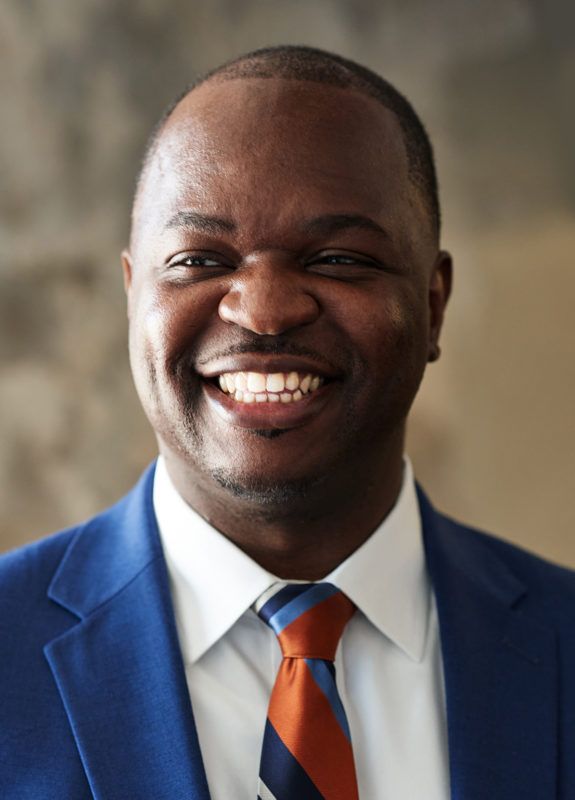
For those who’ve been involved in local Flatbush civic affairs, Josue Pierre is a familiar face. Pierre, a Haitian immigrant, is the Democratic District Leader for the 42nd Assembly District, and a co-founder of the Shirley Chisholm Democratic Club.
He came to Flatbush as a five-year-old in the late 1980s, his family settling in on Church Avenue across from the Holy Cross Catholic Church. His paternal grandparents, a homemaker and a cabbie, had immigrated before and lived nearby in Crown Heights. Pierre grew up second oldest among four brothers, in the family of a home health aide and a mechanic, attending PS 181, followed by MS 61 – which shaped how he sees what’s wrong with the education system. The school in the mid-1990s was overcrowded and underfunded and was the place where he first witnesses real violence. Pierre went on to Clara Barton High School in Crown Heights and graduated as a dental assistant, which helped pay his way through studying for a degree in accounting and finance at CUNY Baruch.
Asked how he got his start in politics, Pierre recalled seeing a Daily News cover in fourth grade when David Dinkins was elected Mayor, to be followed four years by Rudy Giuliani – and the difference that made for his community. He watched the entire massive emotional funeral of Patrick Dorismond, a young Haitian man that was shot by cops in 2000.
The early 2000s also saw his first Community Board 17 meeting – over a proposed shelter, that his neighbors had asked him to attend to see what was going on. Pierre says he saw first hand what it meant when people did not know how to ask the right questions, and how easily their concerns could be dismissed.
His professional career started at PriceWaterhouseCoopers, then he worked as Senior Financial Officer and then Borough Director at the Office of the New York Comptroller.
We talked to him about his run, and what he hopes to accomplish if elected to represent District 40 in the city council. The race is contested, with 12 candidates vying for the votes in the June 22 primary that will decide the election. Pierre is among the top five, running against cop Edwin Raymond, teacher Rita Joseph, political staffer Kenya Handy-Hilliard, and lawyer Blake Morris.
Responses have been lightly edited for length and clarity.
Why did you decide to run now?
I decided to run because the needs of my community are not being adequately addressed, the pandemic continues to impact marginalized communities and now, more than ever, we need a bold progressive leader who is not afraid of partnering with residents to realize real progress in neighborhoods.
I show up every day as a black man, immigrant from Haiti, social justice advocate, a gay man, and I don’t think enough is being done to address systemic issues facing these communities. Glaring issues that cannot wait are the lack of affordable housing, inequities in our education system, and collapsing small businesses that have created this crisis.
Frontline workers are being treated not as the heroes they are, but a group of individuals that the government continues to tax to balance the budget. There were always needs that needed leadership, but the pandemic made it worse and I am running to improve the quality of life of everyone who lives, works, and visits the 40th District.
How have you spent the pandemic? What has it been like for you?
We are now well over a year into this pandemic and we’re still fighting this virus. People in the 40th district are unemployed, food insecure, worried about their families, children still struggling with virtual learning, and the 11226 zip code remains one of the areas with a high COVID-19 infection rate.
Since my dad tested positive for COVID-19 in the spring, my family has done everything imaginable to stay safe, but my parents are fortunate because they’re both retired (my mom was an SEIU 1199 member, and my father worked three jobs).
Many working families are not as fortunate so I have been organizing masks, hand sanitizer, food distributions particularly in areas where there are food deserts, connecting residents with tenant resources, calling for rent cancellation and a moratorium on evictions. I organized an informational webinar on the vaccine for Flatbush residents and discuss information on my weekly radio show in Haitian creole. I have spent my pandemic serving others during this challenging time because we are truly all in this together.
Have you seen a change in your district? What will Flatbush need to recover from the pandemic?
The district has not seen much improvement in the quality of life for many of the residents. However, my community is resilient and they want a leader who is accessible and visibly present.
I think about the essential workers in my district, including people working in healthcare, transportation, city government, and grocery stores, who are critical to fighting COVID and keeping the city functioning. I visit and talk with owners of our local restaurants, barbershops, hair salons, nonprofits, and churches who are struggling to just make it to the end of the month.
The pandemic has severely impacted our economy and will continue to affect working families if we do not invest in New Yorkers. Tenants and homeowners are still dealing with the very real fear of losing a roof over their heads and being left on the street with nothing but the clothes on their backs.
Access to fresh food and vegetables has become more difficult, leading to increased food insecurity. Of course, I talk about these issues to raise awareness, but more importantly, I’ve partnered with local community-based organizations to organize food distributions where families, including young kids, are standing in line to hopefully receive enough food to get them through the week.
I’m happy to see my community mobilize to respond to these immediate needs, I’m dismayed to see so many people suffering from food insecurity. My district needs resources and investment from every level of government. My role in the recovery efforts, if elected, is to fight against any closures of grocery stores or pharmacies, ensure the next mayor has a comprehensive plan to ensure the safety of teachers, staff, and kids returning to school, and leverage additional resources to save small businesses, and advocate for Albany to increase taxes on the wealthy. To be clear, I will not support a budget that does not put working families first.
What top three issues will you prioritize if elected and why?
When I knock on doors, do community service or just talk to people on the street, I am reminded of why I decided to run and what kind of leader I intend to be for a community that gave so much to my family and me. My priorities are and will always be aligned with the community and what I hear from them is the need to increase real affordable housing, attain educational equity, and recover from the pandemic.
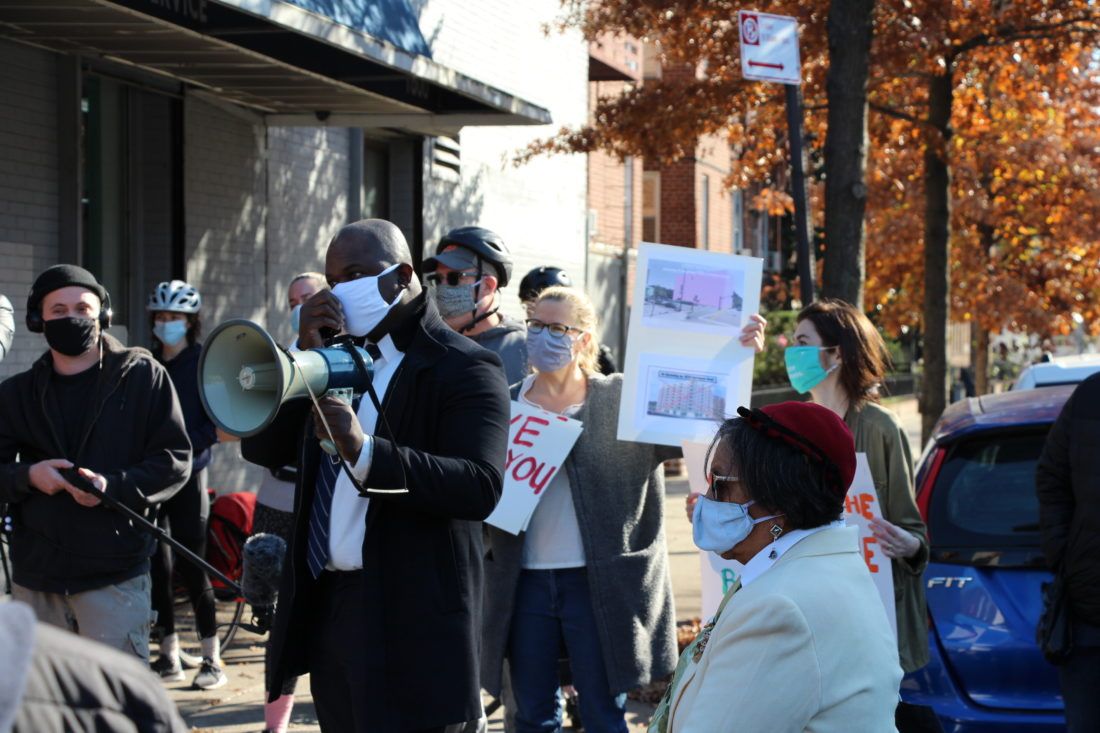
For so long, the default was to defer to developers who wanted to come in to build taller and market new units for transient upper middle-class individuals. My ‘tenants first’ plan and ‘community first’ approach will not defer to developers when deciding what’s best for the community and whom the new units are affordable for. The people who have lived in these neighborhoods for generations should and will have a substantial voice in the character, direction, and vision for their own communities.
End the school to prison pipeline by fully funding an education system that invests in our kids so that classrooms do not mirror crowded subways during rush hour, teachers are not severely underpaid, and most importantly, equity is at the forefront in how we educate our young people. Every school should have the latest technology, books, and access to additional class instruction. I want my nephews and niece to receive a high-quality education and it should not matter what school they attend, because every NYC public school should be considered a great school.
Last, COVID has impacted all of us, from changing how we socialize, losing family members, jobs, and friends, to worrying about how to take care of basic needs. Businesses are closing in communities faster than new businesses are opening and the trend has to reverse and we need to get working people back to work. Ensuring an equitable recovery from this pandemic is critical to addressing many of the underlying inequities that led to this crisis.
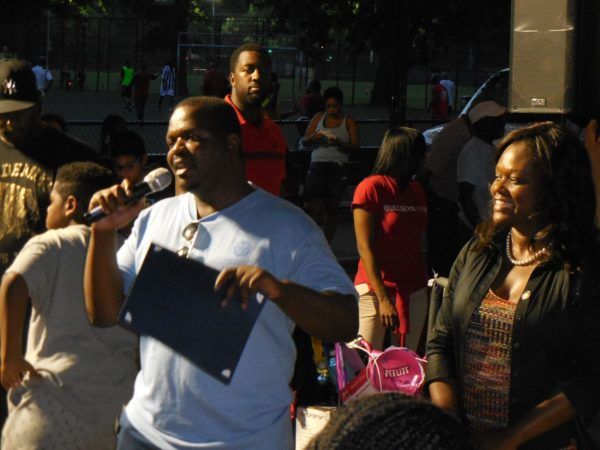
What would you aim to accomplish in the first 6 months if elected?
My tenant protection unit plan. It’s an extension of rent laws that were enacted in 2019, and it is only reasonable that there was a way to ensure that the laws are enforced. I believe it can get done in the first 6 months.
How will you compare to the previous leadership?
The residents are not looking for a comparison, rather, the community is looking for a leader who will truly partner with residents to increase real affordable housing, get people back to work, and ensure our district has the services that other areas utilize and benefit from.
I believe that I am the right leader to meet the needs of the community. I was one of the first individuals to help pilot the city’s participatory budgeting process and not only am I supportive of that initiative, but I intend to utilize those intentional outreach strategies for the work that I will do on behalf of the residents every single day.
How do you differ from your opponents?
I have elevated the role of District Leader from simply being visible every four years to actually being a coalition builder, problem solver, resource connector, and a true partner. My priorities and vision as the next Councilmember, if elected, were informed by serving this community for over 10 years and the candid conversations that I’ve had with residents as District Leader.
I am a black man, an immigrant from Haiti, an openly gay man, son of an 1199 member and car mechanic, and an unapologetic progressive. I bring all of my intersectional identities everywhere and are the core of my value systems and inform how I serve my community. I have lived in this community for practically all my life. Being a servant leader is not only who I am, but the genesis of the type of leadership that is required to partner with residents for a better and more equitable Flatbush for everyone.
I am the only candidate who has actually financed affordable housing units, and I will actually fight for real affordable housing for working families. I will amplify the voices of marginalized communities to fight for racial and social justice.
I possess a unique combination of experiences. My community experience, my professional experience, and my vision for the district make me the best choice for Council Member in this race. That is why my campaign has been endorsed by UFT, NYCC, CUFFH Action, RWDSU, CWA, Teamsters Local 237, Sheet Metal Workers Local 28, PSC Cuny, Lambda Independent Democrats, and many other organizations.
Housing, homelessness, education, are big issues in the city/district. How will you address them?
Housing is a human right and an economic problem. Being homeless exacerbates every other social issue. Homeless folks are exceedingly more likely to be victims of violent crimes, have addiction, mental health, healthcare access, and food access problems that impact our entire community. Having a stable, secure place to live is the cornerstone of a productive life.
First, all city-owned land for sale should be utilized for 100% affordable units. Second, the 80% market rate and 20% affordable method are not working to house those in need or real affordable housing. We need to flip the formula to at least 80% of the units being reserved for affordable housing. Last, the city needs a tenant protection unit and I’ve written an op-ed calling for the city to actually protect tenants by creating a unit within the department to share information with communities and crack-down on slumlords.
How will you address policing?
I have experienced both the prejudice and the utility of the NYPD. My brothers and I have been stopped by the police on numerous occasions because of the color of our skin. Each time this has occurred, I think about George Floyd, Sandra Bland, Tamir Rice and so many others who should be alive today.
I also think about my family’s experience with the NYPD. My mother, while making dinner in her home, was hit by a stray bullet used in an altercation between two people. Police and emergency medical services were the first to arrive at the scene, arguably saving my mother’s life.
I believe reallocating a portion of the NYPD’s budget to increase resources for social services such as placing mental health professionals in schools, having mental health care professionals respond to mental health calls, and providing additional housing resources must be a priority. I will demand using mental health professionals instead of armed officers to respond to mental health crises; getting armed police out of schools; and no longer using police for enforcing minor traffic violations and any other activities that don’t make us safe.
Nobody should live daily in fear of law enforcement, yet that’s what so many Black folks feel every day. At the same time, we must pass stringent police accountability and transparency measures in addition to restricting costly NYPD overtime, reducing academy class sizes, teaching de-escalation practices, removing top NYPD officials who have enabled police brutality, and holding individual officers accountable for their actions.
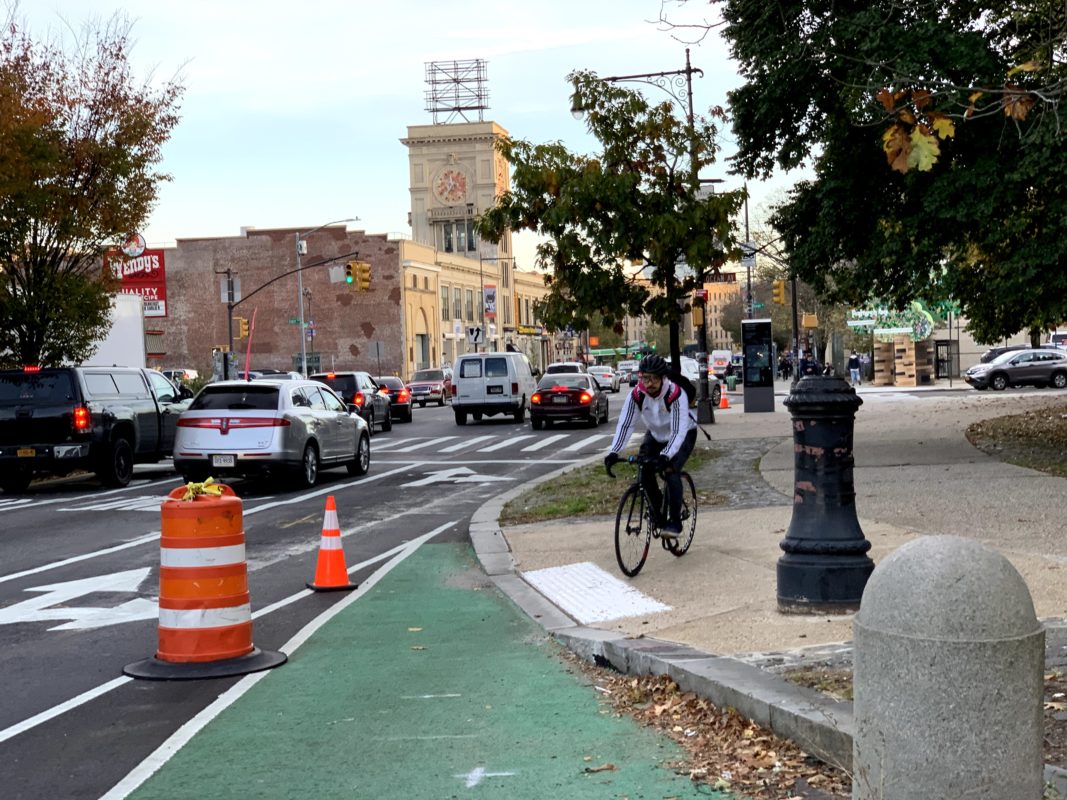
How can transportation be improved in the district?
I love bicycling, but we need more protected bike lanes. Not on every street, but there is a definite need for better bicycle infrastructure, as well as buy-in from the community that pushes back thinking it is being built just for the newcomers. Black and brown people love bicycling too – it’s healthy, it’s cost effective, and it’s faster than most of our currently available options.
Having grown up in a large family, our parents had a car. There is a real opportunity cost for working-class folks not served by efficient train or bus service, especially in higher crime areas. But for the city at large, mass transit is key, and we need more cross-borough bus lanes.
I got my current bicycle in 2016, and let me tell you, the best time to ride around in Flatbush and East Flatbush is before 7 am on a Saturday or Sunday morning, the streets are empty, you see the beauty of the community. Birds chirping, very few cars, springtime, in particular, is just magical.
How do your past experiences make you fit for this position?
I have lived through and am still impacted by struggles faced by many of our residents here in the 40th District, including low-quality housing, underfunded schools, unemployment, my mother was the victim of gun violence, and personally not having health insurance, so I understand the heightened anxiety many Brooklynites feel right now.
But I also share that common desire to achieve a better quality of life for myself and my family — a feeling shared by new arrivals, immigrants, and longtime residents. Coupled with my professional experiences in economic development policy and community service, I am ready to tackle the problems that keep residents up at night.
What are you most proud of?
I’m proud of the resiliency of my community and the individuals who partner with me on the work that we do. I often think about the seniors who are the matriarchs and patriarchs of their families and somehow continue to find their sense of purpose and joy right here in the community that they’ve called home for so long.
What do you do in your free time?
I like spending time with my family. I have nephews and nieces that I rarely see as often because of COVID but hope to visit a few museums and parks with them as we move towards reopening. I enjoy riding my bike through Prospect Park, it helps me clear my head and de-stress, and sometimes inspires new ideas. And like many of my friends, I enjoy binge-watching shows with my partner Corey.
What is your favorite part of your district?
My grandparents and aunt lived on Fenimore Street in Prospect Lefferts Gardens before they were priced out. Walking up and down Bedford Avenue and the various blocks lined with brownstones and Victorian homes, always gives a feeling of nostalgia, while also being something I aspired to while growing up as a place to own a home.



